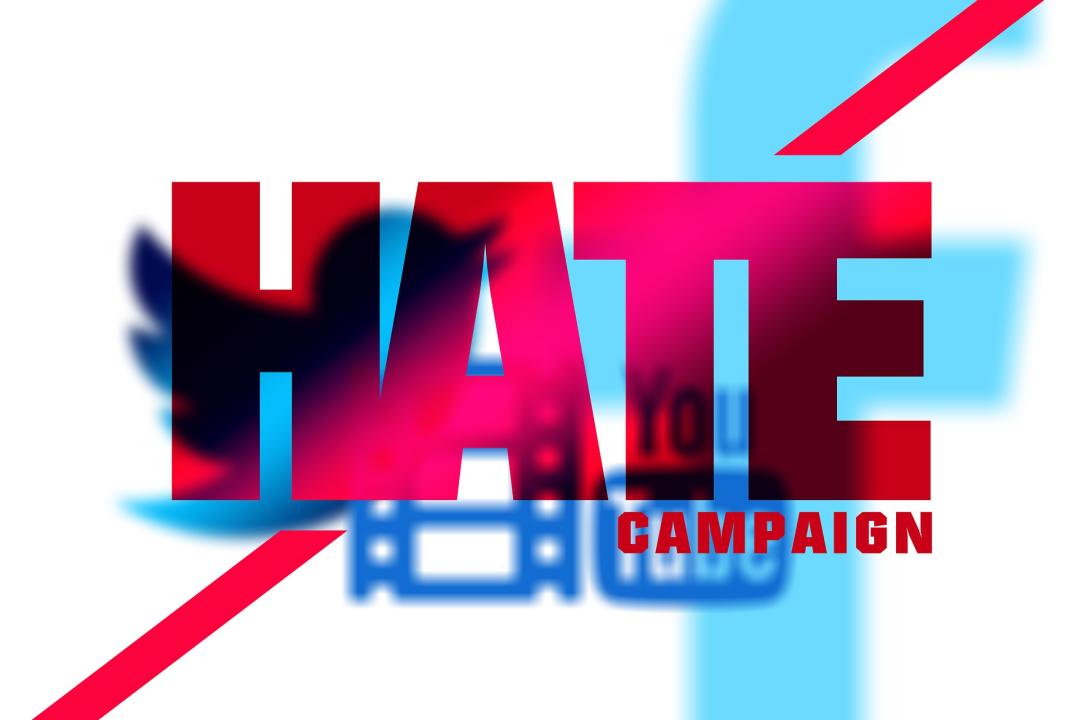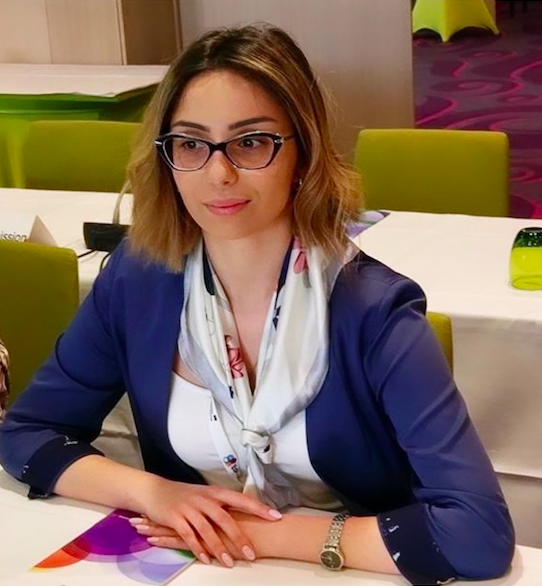
Political polarization and hate speech in Armenia after the Velvet Revolution

How does the current polarization between the old and new elites affect Armenian society and to what extent the political actors benefit from this situation? Contributed by Magda Arsenyan, political analyst based in Armenia.
 ‘VELVET REVOLUTION’ AS AN IMPULSE FOR THE ERUPTION OF EXTINCT VOLCANOES
‘VELVET REVOLUTION’ AS AN IMPULSE FOR THE ERUPTION OF EXTINCT VOLCANOES
Hate speech in Armenia gained momentum during the anti-government protests from April to May 2018, ending with the ‘Velvet Revolution.’ The study and the analysis of public discourse in post-revolutionary Armenia, unfortunately, show that political polarization and hate speech are no longer “extinct volcanoes”. The eruption and the strengthening of these volcanoes are conditioned by the radicalization of the consciousness of the society, that is a result of multilateral desocialization during the 28 years of Independence. The latter was conditioned by the following two factors. First of all, the monopoly governance of the former ruling political party led to the fall of parliamentary competitiveness and extra-parliamentary opposition forces. As a result, the opposition political forces, regardless of being parliamentary or extra-parliamentary, were not perceived as real opposition political actors. This led to an absence of public demand for alternative programs in the political agenda. Secondly, within the reign of the former ruling party the fact of society's alienation from political socialization processes, ineffective social policy, unsatisfied public expectations and demands, as well as the mistrust towards government decisions, legislative initiatives and actions escalated drastically.
The above-mentioned facts led to the instigation of clashes on the state level which has been labelled and recognized locally and internationally as a ‘Velvet Revolution.’ In addition, it should be highlighted that for decades the devolution of the governmental power seemed pretty unrealistic. As for the public reaction in the case of possible opportunity, one would be a witness of the eruption of mass aggression accumulated over the years…
However, within the framework of the recently formed new political landscape of Armenia, it becomes obvious that hate speech and political polarization are those best tools in the hands of the old and new political elites. As for the old elites, it is the way to maintain their political existence and for the new political elite to maintain its legitimacy, that is more difficult than in the case of the old elites. Why? The only mechanism used to make the current prime minister become a 100% legitimate leader was the use of hate speech to polarize society into revolutionary and anti-revolutionary camps. It’s enough to study the rhetoric of the ‘Velvet Revolution’, the main and the most popular slogan and the hashtag of which was ‘Reject Serzh.’ I believe that the problem is that ‘Reject Serzh’ was the most irresponsible way to express a public sentiment.
Nikol Pashinyan and his supporters convinced society that the one and the only culprit for all socio-political disasters of the system, as well as the personal failures, was Serzh Sargsyan and the Republican party. Based on the result, it was a simple task to do. The hate speech campaign of the Velvet Revolution included the following action plan: 1) the denial of the past in general as well as any societal relation to the representatives of that past. In this context, it should be noted that the Republican party was a mass party and was represented by all the social classes in almost all regions of Armenia. 2) Instigation of the emotional background of the society, as a result of which during the revolution, actions of putting funeral wreaths, black ribbons and coffins near on front doors of the houses of MPs’ from Republican and Prosperous Armenia party took place. 3) The creation of a new political agenda where the actors and the society should be integrated into two different camps-heroes and anti-heroes. This polarization is being actualized from time to time with different topics, as it is an existential need for the new political elite, since the latter is competent in that concrete space, in a comparison with the old one, with the rejected one.
HATE GAME=POLITICAL ZERO-SUM GAME
Apart from the newly formed political elite, the old ones also do their best to take dividends from the current allocation of political resources and to make a personification of these process under the PM's responsibility. This ‘hate game’ is easily conducted due to the following incentives:
-
The main reason for the rapid dissemination of hate speech in a national and international sense is conditioned by the objective inability to manage the distribution and exchange of information streams.
-
No matter how ridiculous it sounds the fact is that the main political agenda is being formed on Facebook, where there are no clear-cut boundaries between the fake and the real news. As soon as topics like the justice in transition, judiciary independence, ratification of the Istanbul Convention, political sponsorship and corruption, information warfare against the Open Society Foundations and towards the organizations taking grants from the latter, violation of the rights of sexual minorities, the Constitutional Referendum of 2020 and etc. are being actualized, simultaneously one can find thousands of disrespectful and slanderous comments towards people who criticize the actions of the government. There are already well-known keywords that reflect the 'meaningful' content of the current political debate. For instance, 'blacks and whites', anti-revolutionists, 'cutting paws', 'hitting over the asphalt', 'hitting in the jaws', ‘corrupted opposition’, ‘mercenaries of Soros’, etc.
-
The poor level of civic and political consciousness and therefore the inability of citizens to differentiate the real news from the fake, as well as the hatred or inflammatory speech from freedom of expression leads them to the unconscious participation in the game, where by default they are assigned the role of a ‘puppet doll.’
-
Another important fact is that the hate speech in Armenian public and political discourse is deprived of ideological and meaningful content. Its framework includes mostly inflammatory speech that excites anger, violence and rebellion. That is the reason why as a result of hate speech political polarization is being formulated not around the ideological discourse, but around the personification of leaders of different political groups within a mono-ethnic society.
This ‘hate game’ is being manipulated and speculated by the four camps of the current political landscape. They are Pashinyan and his supporters, Robert Kocharyan and his supporters, the Republican party and extra-parliamentary old parties. The newly formed civic initiatives are marred by uncertainty and still haven’t decided whom to support in this ‘virtual hate war’ so they can get out of the game with laurels on their heads.
DEADLOCK INSTEAD OF EVOLUTION
The study of the evolution of hate speech in post-revolutionary Armenia shows that Armenian public discourse is reflected in the form of a multilateral dialogue between the representatives of the old and new elites and where the society has been fashioned into pawns. This is indeed a closed chain of communication, the result of which is a continuous reproduction of aggression.
This multilateral dialogue is being conducted in two levels: At the first level is the intolerance against political pluralism in the context of internal and foreign politics. In this context, it is relevant to stress the dishonorable wording of the representatives of the former ruling party and former RA president Robert Kocharyan’s team, as well as members of the newly formed civic initiative ‘Adequate’ towards the current PM Nikol Pashinyan. It is clear that in the case of the old political actors there are some unfinished stories such as the case of March 1, 2008. Moreover, in some cases, this wording might be considered as a responsive act towards the hate speech expressed by the representatives of current authority. Although, in the case of new political actors, their criticism towards the activities of the ruling elite might be estimated both subjective and objective, as all the vicious phenomena of the socio-political system or important unsolved issues can’t be overcome immediately. As for the public reaction to such criticism, no matter if it is justified or not, it is being identified as a support to the representatives of the old elites. The similar negative reaction also goes for the activities of parliamentary opposition. Though in this context, the ‘Bright Armenia’ party should be secluded, as the ‘Prosperous Armenia’ party failed to develop its opposition identity. At the second level is the actualization of taboo topics that are being deprived of conversation as a result of politically intolerant and a failed dialogue at the first level. Among these taboo topics are the information warfare against the Open Society Foundations, the petition against the ratification of the Istanbul Convention, violation of the rights of the LGBT community and etc. should be highlighted.
There is an idea that currently, Armenia faces a constitutional crisis…Yes? No? From my perspective, the constitutional crisis started a long time ago and will last until there are citizens, who don’t understand the meaning of the Constitution and political leaders who design the constitution for their safety. As long as political constitutionalization of the society is so degraded, there is no need to look for a meaningful debate on the prevention of hate speech in Armenia.
See Also


From Neorealism to Neoliberalism: Armenia’s Strategic Pivot in Foreign Policy After the Nagorno-Karabakh Conflict

Georgia and Russia: New Turn in Bilateral Relations

3+3 Initiative as a New Order in the South Caucasus

Economic Cooperation Between Armenia and Georgia: Potential and Challenges Ahead

